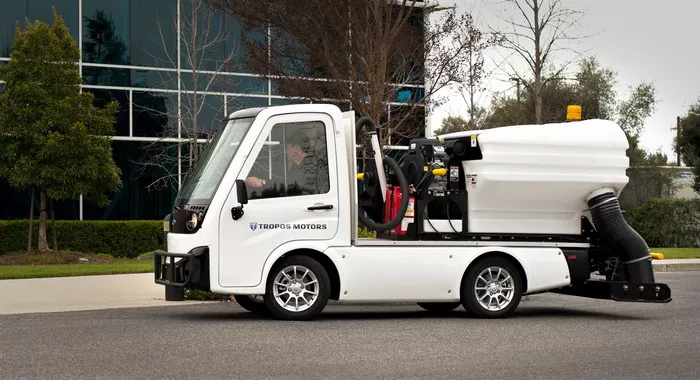Sweepers are essential cleaning machines used in various settings, from streets to warehouses. Understanding how long these sweepers machines last is important for businesses and individuals who rely on them. In this article, we will explore the lifespan of different types of sweepers, factors affecting their longevity, and maintenance tips to extend their usability.
Understanding Different Types of Sweepers
Mechanical Sweepers
Mechanical sweepers are often used for outdoor cleaning. They use a combination of brushes and brooms to collect debris and dust. These sweepers can be found in both walk-behind and ride-on models. Typically, a well-maintained mechanical sweeper can last anywhere from 5 to 15 years. The lifespan largely depends on usage frequency and the conditions under which they operate.
Vacuum Sweepers
Vacuum sweepers are designed for both indoor and outdoor use. They use suction to collect dirt and debris, making them highly effective in cleaning a variety of surfaces. Vacuum sweepers usually have a shorter lifespan compared to mechanical ones. On average, you can expect a vacuum sweeper to last around 3 to 10 years. The longevity of these machines often depends on how frequently they are used and the type of debris they handle.
Ride-On Sweepers
Ride-on sweepers are larger machines used in industrial and commercial environments. These are ideal for cleaning large spaces such as parking lots and warehouses. A ride-on sweeper can last between 7 to 15 years. The duration largely depends on the model’s quality and how well it is maintained.
Factors Affecting Sweeper Lifespan
Quality of Construction
The quality of the materials and construction plays a significant role in determining how long a sweeper lasts. High-quality components can withstand wear and tear better than cheaper alternatives. Investing in a reputable brand is often a wise choice.
Frequency of Use
How often the sweeper is used greatly impacts its lifespan. Daily use will wear out the machine faster than occasional use. For example, a sweeper used in a busy retail environment will experience more stress than one used in a less-trafficked area.
Type of Debris Cleared
The type of debris the sweeper encounters can also affect its longevity. If the sweeper frequently deals with heavy materials like gravel or metal shavings, it will likely wear out faster than one that only handles light dust and debris. Choosing the right sweeper for your cleaning needs is essential.
Maintenance Practices
Regular maintenance is crucial for extending the lifespan of a sweeper. Machines that receive routine checks and necessary repairs tend to last longer. Neglecting maintenance can lead to significant issues that may shorten the life of the machine.
Maintenance Tips for Extending Sweeper Life
Regular Cleaning
Just like any other equipment, sweepers require regular cleaning. Dust and debris can accumulate and affect their performance. Cleaning the sweeper after each use will help maintain its efficiency.
Scheduled Inspections
Conducting scheduled inspections is vital for identifying any potential issues before they become serious problems. Check the brushes, belts, and filters regularly. This practice can help you catch wear and tear early, extending the machine’s life.
Proper Storage
Storing the sweeper correctly can prevent damage. If possible, keep it in a climate-controlled environment. Protect it from extreme weather conditions, which can cause components to wear out faster.
Use Quality Replacement Parts
When parts need replacement, always opt for high-quality components. Using inferior parts can lead to further damage and reduce the lifespan of the sweeper.
Follow Manufacturer Guidelines
Manufacturers often provide guidelines for maintenance and usage. Following these guidelines can significantly enhance the longevity of the machine. This includes recommended cleaning procedures, usage tips, and service schedules.
see also: What is the Best Above Ground Pool Vacuum?
Signs Your Sweeper Needs Replacement
Decreased Performance
If you notice a significant drop in performance, it may be time to consider a replacement. Reduced suction or ineffective cleaning could indicate underlying issues that may not be cost-effective to repair.
Frequent Breakdowns
If the sweeper requires frequent repairs, it may be more economical to invest in a new machine. Constant breakdowns can disrupt your cleaning routine and increase maintenance costs.
Visible Wear and Tear
Physical signs of wear, such as damaged brushes or rust on the body, can indicate that the sweeper is nearing the end of its life. Regular inspections can help you identify these issues early.
Incompatibility with Cleaning Needs
As your cleaning requirements change, your current sweeper may no longer be suitable. Upgrading to a model that better fits your needs can improve efficiency and reduce operational costs.
Conclusion
The lifespan of sweepers varies widely depending on several factors, including type, quality, usage, and maintenance practices. Mechanical sweepers can last between 5 to 15 years, while vacuum sweepers may only last 3 to 10 years. Ride-on models generally have a longer lifespan, often reaching up to 15 years with proper care.
To ensure your sweeper lasts as long as possible, focus on regular maintenance, quality replacements, and following manufacturer guidelines. By paying attention to these aspects, you can significantly extend the life of your sweeper, making it a valuable investment for your cleaning needs. Whether you use it for commercial or residential purposes, understanding how to care for your sweeper is essential for maximizing its lifespan and efficiency.
Related topics:

